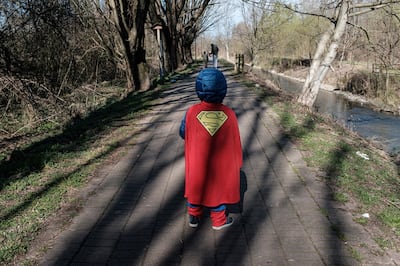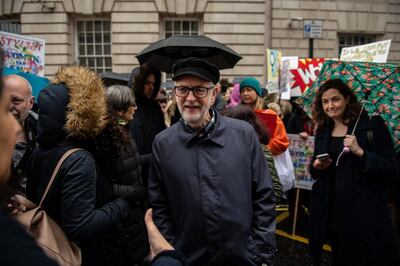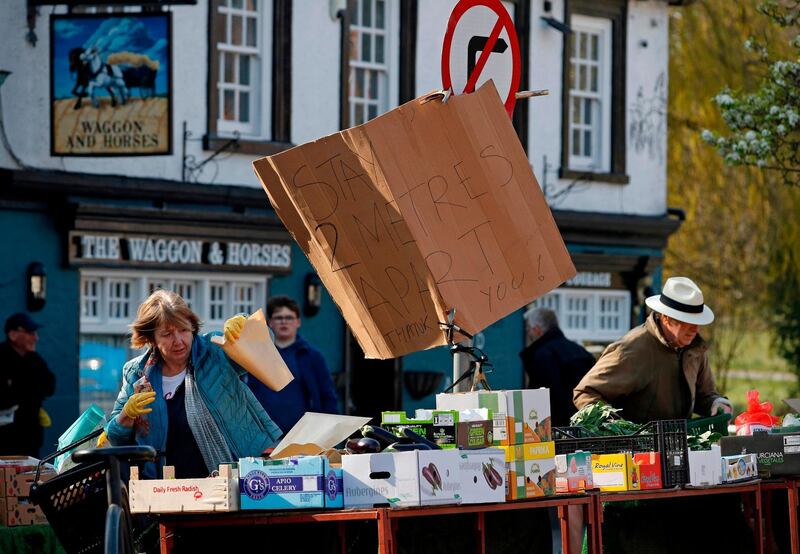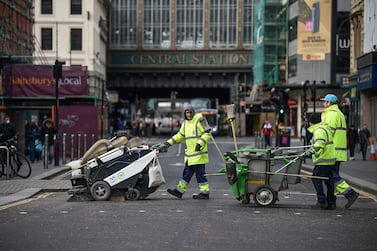Unless you are a rap music aficionado, you may not have heard of the all-star album Not All Heroes Wear Capes. But the sentiment behind the title is obvious – you do not have to be Superman or Superwoman to do a heroic job.
Britain has gone into pandemic lockdown, and it is all a bit – well, very British. It began with the government suggesting – suggesting – that we might, if it is not too much trouble, take a bit more care of ourselves. Instead of ordering us all to stay at home, it was a polite request: “I say, old chap, would you mind terribly not giving people coronavirus? Thank you. Much obliged.”
Now in Phase Two, with Prime Minister Boris Johnson himself testing positive for the virus, we have tougher rules. Everyone near where I live seems to obey the rules and keep their distance, but the cliche of the "reserved English" never seemed right to me. On my daily walks, just about everyone I pass (at a distance of two metres) offers a friendly nod or says hello and occasionally "Keep Safe". We are truly all in this together.
Then there are the local heroes, none of them cape wearers.
There is Lizzy, who wears an apron in the butcher’s shop she runs; Richard who wears farming clothes and muddy boots, fresh from the fields; another Richard who wears jeans and a big furry hat in the cold weather because he sells bread at an open air local market that is now closed; and Darren who wears stout waterproof boots because he runs the fish shop and likes to hose it down to keep it clean.

These not-cape-wearers have shown heroic super powers. Lizzy recognised that her older customers are unable to go into her shop, so she organised meat deliveries for those who order by telephone. Darren has done the same. He has always delivered to restaurants, but now the restaurants are closed he has switched to delivering fresh fish to homes, including mine. The big raw prawns and fresh salmon arrived as I started to write this and are now in the fridge.
Richard the baker just delivered three fresh loaves to me, enough for a couple of days, and the other Richard, the farmer, has produced fresh vegetables unlike anything you will get from a supermarket. The mud is still clinging to the carrots and potatoes.
Within days, these four people and undoubtedly hundreds of thousands of other small business owners around Britain are doing their best to survive, and are also looking after the needs of hard-pressed communities. They have changed the way they work, and they have changed in some ways how they think.

When normality returns – whatever that now means – maybe their business models will also return to what they were, but I doubt it. The pandemic will change us all – although the cheerfulness of daily contacts, and the desire to be polite and friendly, has surprised me. I hope it continues.
However, it has to be said that technology has made many more changes possible.
I am working on the final episode of a podcast series that requires face-to-face interviews – well, it did. My producers figured out how we could record interviews remotely on Zoom, meaning that I have been online in other people’s living spaces in Washington and London, without leaving my own home.
One of those I talked with, a Russian historian, pointed out that coronavirus will change us in ways we cannot possibly comprehend. He pointed out that when Lenin, the former premier of the Soviet Union, was in exile in Switzerland during the First World War, he predicted that revolution in Russia would not happen in his lifetime. Six weeks later, he was on the train to revolutionary Moscow. The historian’s point was that great crises sometimes pull us together – as my local superheroes have done – and sometimes unpredictably they pull us apart.

In terms of pulling apart, it is clear that facing the pandemic has solidified some prejudices.
On the political left in Britain, Labour party leader Jeremy Corbyn and his supporters have taken to blame austerity and under-investment in public services for the problems in the health service. On the political right – from Donald Trump in the US to Nigel Farage in the UK – some have taken to blaming China, as if viruses have a nationality. This is absurd as well as offensive, unless in Mr Trump’s case he is also willing to blame Europeans for importing smallpox and other diseases to the Americas.
Right now we do not need to blame villains or enemies. We need heroes and friends. There will be plenty of time later to consider which governments, which leaders and which healthcare systems have performed well – and which have been complacent, ignorant and failed.
In the meantime, the superheroes – the Lizzys, Richards and Darrens – need to be celebrated, along with the superheroes who wear masks – the healthcare workers who should be the focus of all our thoughts and prayers for what they do. They do not need capes. They need more equipment and resources, and luck.
Gavin Esler is a journalist, author and presenter






